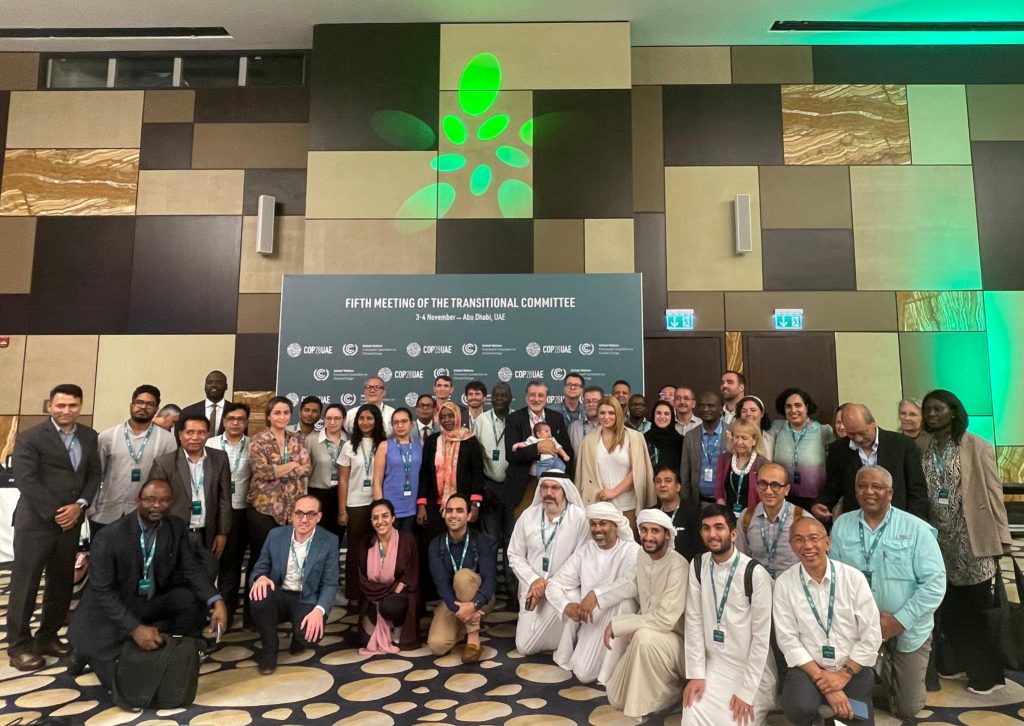Two weeks after the collapse of negotiations in Egypt, the Transitional Committee on Loss and Damage concluded its fifth and final meeting in Abu Dhabi, United Arab Emirates, with a fragile agreement. The committee regrets that “the United States of America claims that this is not a consensus document, as it was not present when it was adopted”.
The Fifth Meeting of the Transitional Committee (#TC5) concluded in Abu Dhabi, with agreement on a list of recommendations for implementing the Loss and Damage Fund. This positive result is a vital step towards a successful outcome on the road to #COP28. pic.twitter.com/aKmPwi3HmZ
— COP28 UAE (@COP28_UAE) November 5, 2023
The countries of the North and South have therefore agreed to host the Loss and Damage Fund for a provisional period of 4 years within the World Bank, a position fiercely defended by the Americans and supported by the European Union (EU). Except that the countries of the South believe that this Washington-based bank is a financial institution “in the hands of the West”. Indeed, during recent international events, the countries of the global South have demanded, unsuccessfully for the moment, far-reaching reform of the Bretton Woods institutions, including the International Monetary Fund (IMF).
Management called into question
The backlash is such that some countries in the South are turning to the New Development Bank (NDB) proposed by the BRICS states (Brazil, Russia, India, China and South Africa) as an alternative to the existing World Bank and IMF. This trend is set to accelerate with the expansion of the BRICS to include Egypt, Ethiopia, Saudi Arabia, Argentina, the United Arab Emirates (UAE) and Iran.
The Fifth Meeting of the Transitional Committee (#TC5) concluded in Abu Dhabi, with agreement on a list of recommendations for implementing the Loss and Damage Fund. This positive result is a vital step towards a successful outcome on the road to #COP28. pic.twitter.com/aKmPwi3HmZ
— COP28 UAE (@COP28_UAE) November 5, 2023
Faced with the choice of the United States of America and the EU to host the new Climate Change Loss and Damage Fund at the World Bank, a number of observers came to the fore shortly before the fifth meeting of the Transition Committee on Loss and Damage. This was the case of David Archer, a current member of the Finance Committee of the Board of Directors of the Global Partnership for Education (GPE), whose fund is housed at the World Bank.
High management costs
“One of the main concerns is the cost of hosting the fund at the World Bank. In recent years, the basic administrative fees paid to the World Bank for hosting the SME secretariat have increased”, he explains in an article published on Climate Change News. According to him, a few years ago, the management fee for the SME fund was increased to 17%, and then the World Bank tried to increase it to 24%. This outraged the SME’s Board of Directors, who negotiated a fee of 20.5%.
Read also- COP28: Dubai, the host city, criticised for its “ecological aberrations
According to David Archer, “a similar situation could arise in the case of loss and damage or climate finance in the broad sense”. On the other hand, “the World Bank could consider itself absolved of any wider liability if it takes over the loss and damage fund”, he adds.
Who will pay into the new fund?
One of the other sticking points on the issue of loss and damage from climate change is the question of which countries will contribute, which has still not been resolved. The text adopted a few days ago in the United Arab Emirates does not oblige major polluters to contribute to the fund. However, the European countries and the United States are insisting that China (the world’s second largest economy) must contribute to the new fund.
The Gulf States, which contribute massively to global warming through their hydrocarbons, are also being urged to contribute to the fund. Considered to be the main breakthrough achieved at the 27th Conference of the Parties on Climate Change (COP27) in Egypt in 2022, the issue of financing loss and damage should enable progress to be made on the discussions in Dubai at COP28, from 30 November to 12 December 2023, which will focus on the energy transition.
Jean Marie Takouleu
